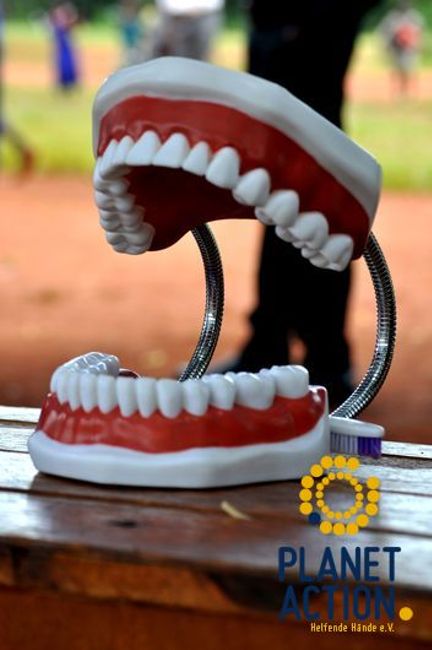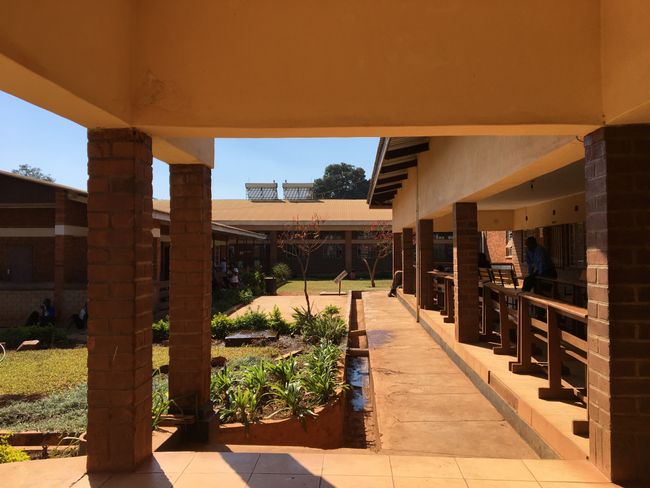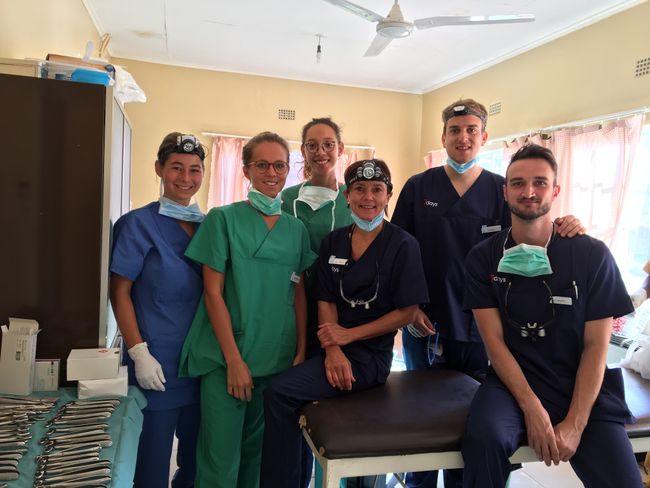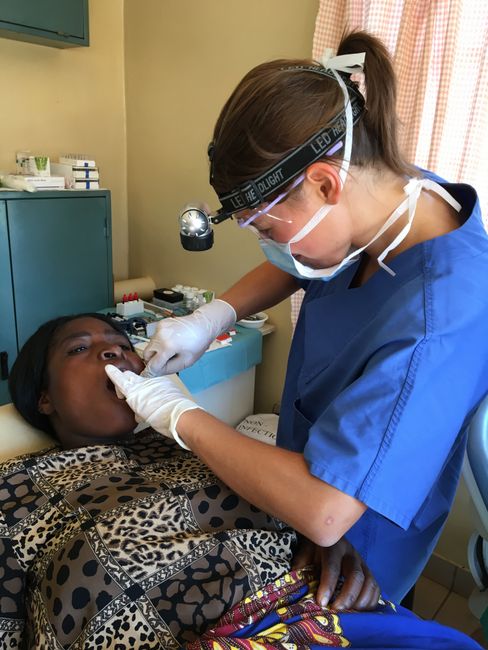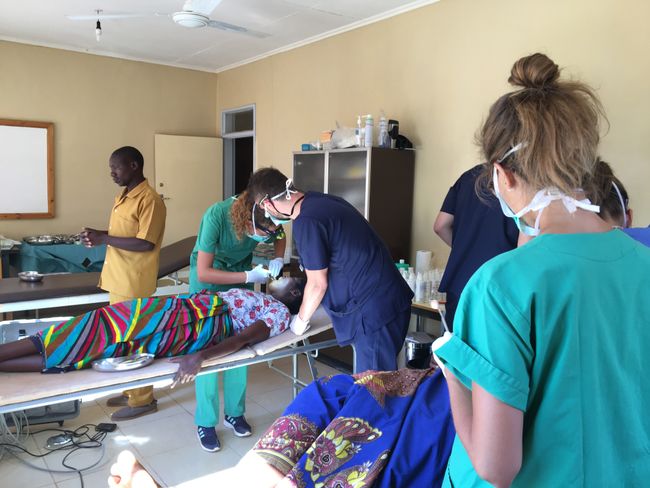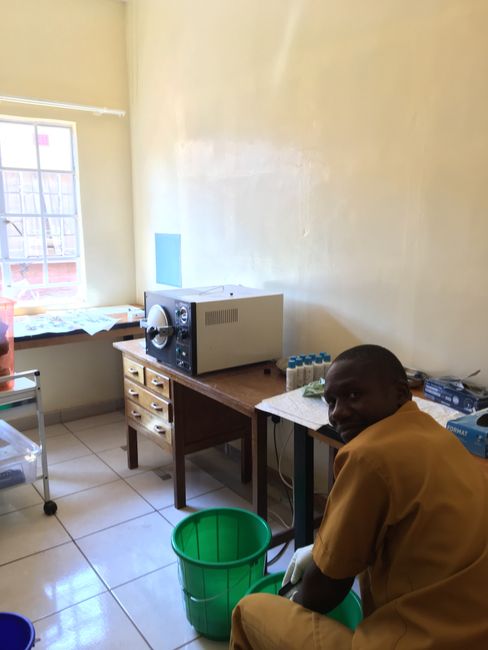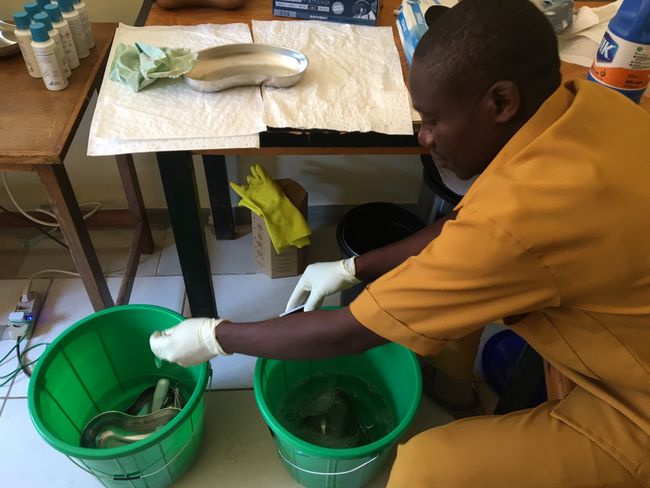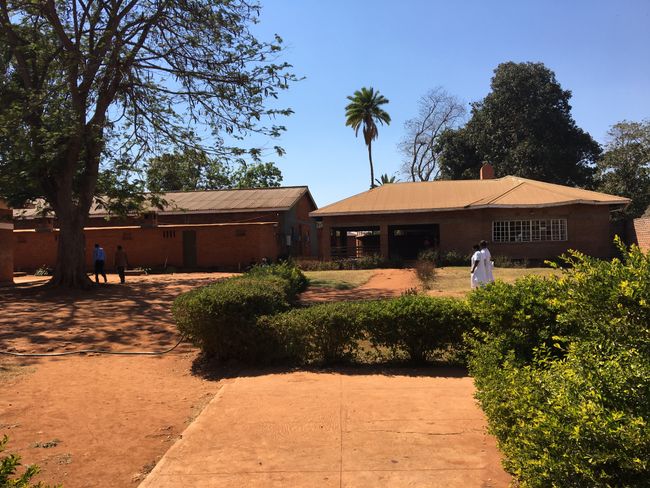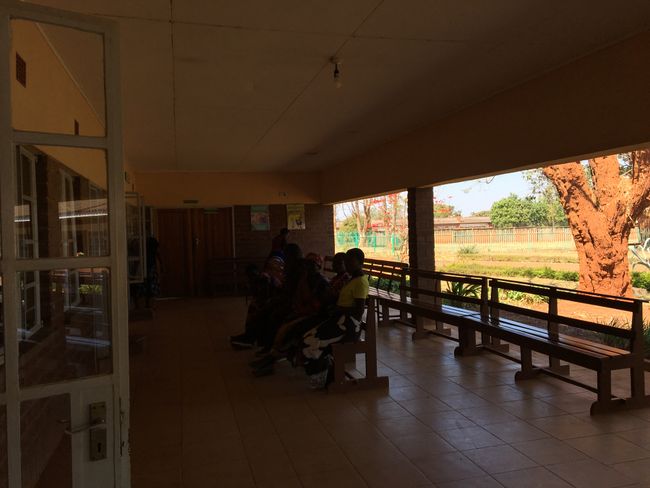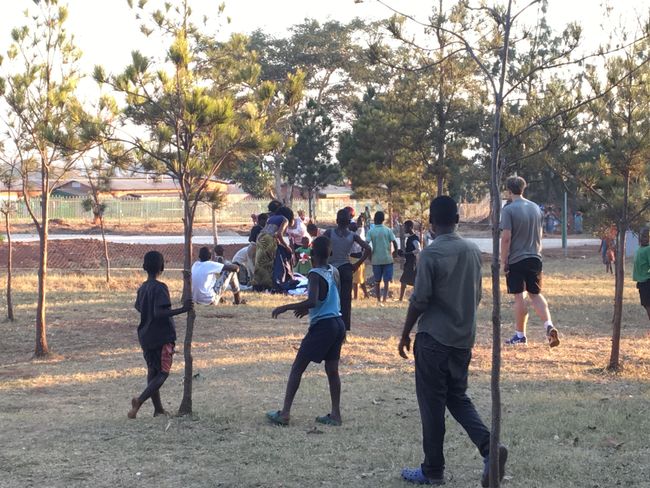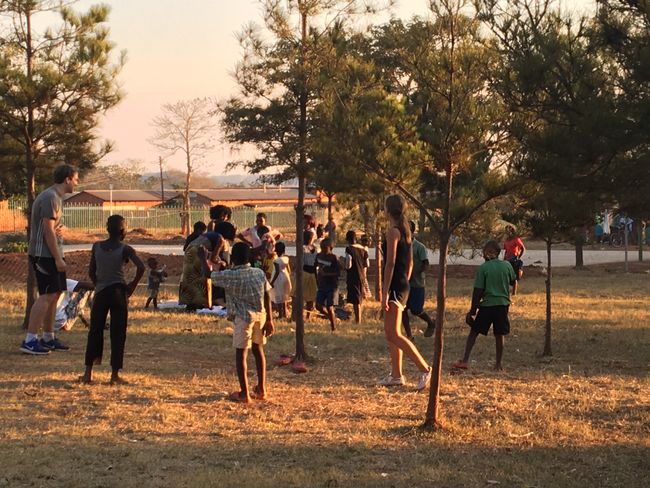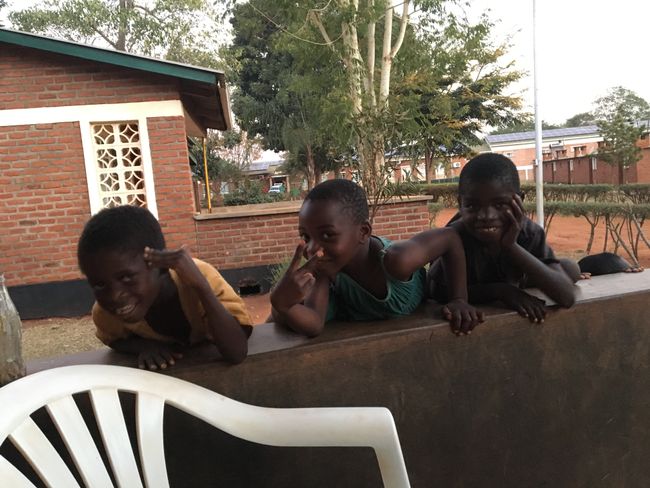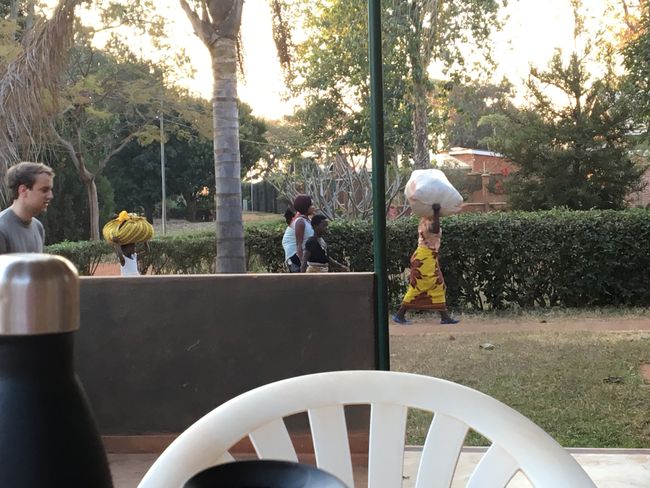5th Day Wednesday
Pubblicato: 08.08.2018
Iscriviti alla Newsletter
Today was treatment day again from 8 am.
Mornings are always busy in the hospital. The Africans wake up very early, around 5 am, and go to bed early. All employees also place
special value on the lunch break between 12 and 2:30 pm.
Afternoons are less busy in the hospital. And promptly at 5 pm, it's over. They don't work overtime.
The hospital consists of a large flat building complex.
The wards such as children's ward, men's ward, women's ward are connected by open corridors. In between are small open spaces with courtyards or meadows. There, usually the relatives who have to take care of and provide food for their own relatives are lying or sitting around.
This afternoon a father came to the outpatient clinic with his 6-year-old son (Dysan). Dysan fell from a tree yesterday and landed on his teeth. After a short examination, a suspicion of an alveolar process fracture arose, which had to be operated on urgently in a hospital with a dental clinic. But the father did not have the money to pay for the transport to Lilongwe. 10000 Kawacha = 12 Euro. (the treatment would then be free there). After a brief discussion, we decided to pay for the transport. An ambulance should be ordered, a surgeon had to give his okay for this, a referral had to be written, paid for, and the clinic director Dr. Mbeya had to give his okay. After about 45 minutes, we finally sat in Dr. Mbeya's office, who then explained to us that the child had to be admitted as an inpatient and would then be transported to Lilongwe by ambulance as an emergency case free of charge. All's well that ends well, but here nobody really knows how things work.
In the evening, we played football on the meadow in front of our house with the children. They had so much fun. They played seriously, celebrated goals, but did not count them. Once you have made contact with the children, they can be very affectionate.
In addition, clothing packages were distributed today. The women patiently stood in front of a hall and then came out with huge packages. Some of them unpacked them directly on the meadow and looked at the piles of clothes. I suspect that these were donated clothes from Europe or the USA.
Iscriviti alla Newsletter
Risposta

